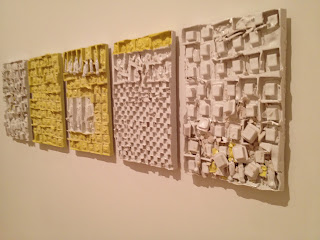Alfshult
19 November 1892
Anna, My Idolized!!
As a clean and true love can
hardly be revealed in words, I will by these lines ensure you that in my heart you
have lit a mighty flame from the first moment when I got the happy chance to
see you. Should I hide this passion inside me? Oh, if you have any idea of the
might of love you must surely feel the impossibility to get loose from an
object that you worship and from whom you get your real life. The life in my
heart and my only real joy are just for you. To love you is my dearest spirit
wish and to be loved by you my highest desire. Only for you I will live for
only you can give my life its true happiness.
Thank you for the enjoyable
moments you have given me. I am sure you will look upon this letter as
venturesome and presumptuous. I myself didn’t know I could arrive at this
boldness. Only I can feel my experience and my spirit so how could I find words
to describe the indelible impression you have made on me? For the first thing I
know what ecstasy is and with it a flood of proposals for one thing and then
another will constantly force their way to my mind--giving my life and my future
prospects a new direction. But I hope you will recompense my love for you and
not let a hopeless love be the consuming poison on my heart, the oppressed yoke
on soul and body, the painful demon, which sucks out life.
I don’t dare hoping of your
love because I know that you have friends who could be better than I am, but
please then tell me. My dearest wish is that this letter will not be the last
I’ll send to you. May the innocence of life prosper on your red cheek and may
your life enjoy the good wishes from a boy who loves you, asking for your
heart, too much to ask of course, my heart I’ll give to you if you want. Full
of hope I look forward to that day when I will get a yes from you. Signed by
your true-hearted adorer Aron Alfsen to Anna Beata!
The letter
arrived at my Father’s cousin’s house in New Jersey from Sweden almost 100
years after it was dated and on Valentine’s Day. He translated it and sent it
to all the scattered families. The story was that an old cabinet was being
taken from a farmhouse and the letter slipped out. Moved, the people who read it took
it upon themselves to find the relatives of Aron and Anna.
Aron was 19
when he wrote this, the first correspondence between them, and Anna was 18. They married on December 14th,
1894.They lived happy, healthy, long lives and were
the parents of my beloved Grandmother Ida. Uncle Fred remembers them well. When Anna died in 1950 he said Aron
stood up and read a poem he wrote about her and their love story.
Aron
deserted his 30-year Army enlistment and left for the United States in early
April of 1898. He got caught in Liverpool for his desertion and was asked to
pay $50 to clear up the matter. He bluffed and said he would actually prefer to go back to Sweden and
promptly disembarked. He bought an accordion, his only baggage, and snuck back on the
next ship out. The full trip to Pennsylvania took from April 10 to May 5, 1898.
According
to my Grandfather John, “When Aron Alfsen left Sweden, he left his wife and two
children: Arthur, about 2 years old, and Judith, about 5 months old. Judith had
been ailing since a month or two of age [she died about five days after Aron left]. She was buried at Alekulla Church cemetery. It was a long time before Anna heard
from her husband. Finally she got a letter and on the way home from the post
office, she sat down on a tombstone to read it. Having read it, she cried for
joy.” Anna arrived in Pennsylvania
with their son at the end of the same year. They had another daughter in 1899
and also named her Judith.
They lived
in a sweet small house on Route 6 in Ludlow Pennsylvania. Tiny town—when I walked down the street on my summer visits I knew
or was related to someone in every single house.
Aron worked
every day in the woods cutting timber and skidding logs until he was 75. He
died in 1957 and is buried next to Anna and two of their children, Joseph and
Ruth, in the Ludlow cemetery.
*Alfshult is the name for a plot of land
and house near Oxaback, Vastergotland, Sweden. Alfsen received Alfshult when he
joined the army the previous year.
*"Dyrkade Anna!!" I used to
carry a copy of the original language letter with me for about ten
years. C's Swedish hockey teammate read the opening salutation, which had
first been translated by my relative as “Adored Anna," and said that it is a
much more intense word and usually used for a reverential religious love. He said, “Wait, I have to get my mind
around this” and looked down muttering a woman's name with Dyrkade
attached. We were in a loud sports bar at the time. He just shook his head finally giving a tiny smile and
straightened up to keep reading.
Grandma Ida and Father Paul...in front of Great Uncle Arthur's house




















.jpg)
